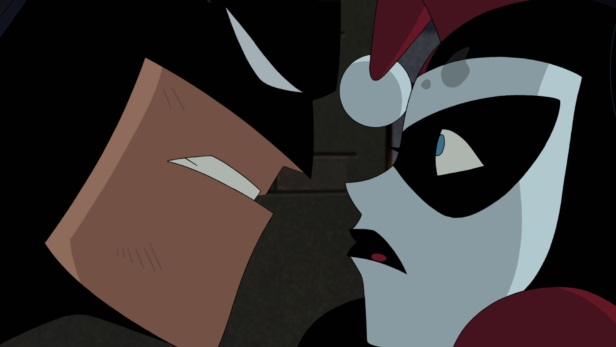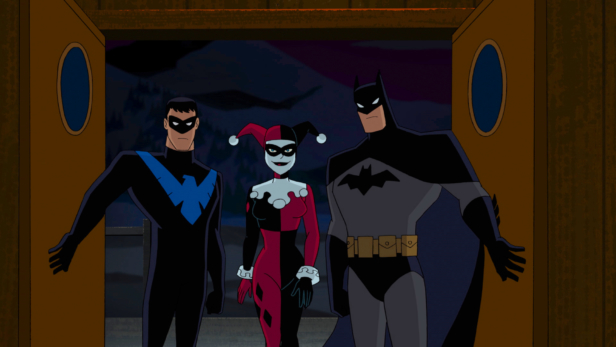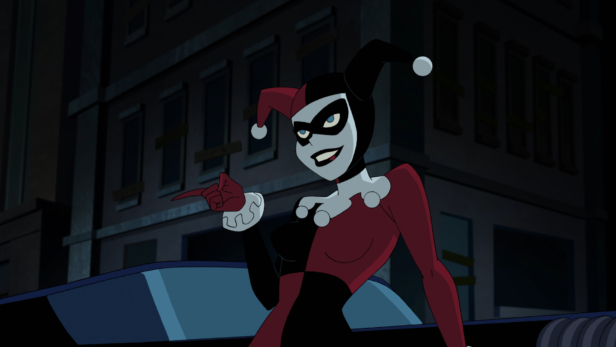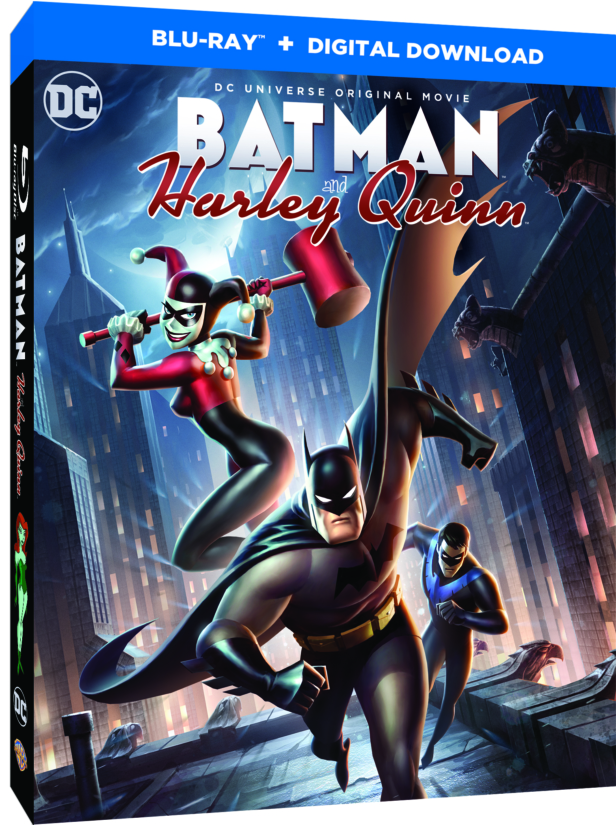As all fans know, Kevin Conroy is Batman. Sure, there have been some great live-action takes on the character, but no one has so perfectly brought Bruce Wayne to life as Conroy, who’s been delivering the voice of the Bat since The Animated Series began in 1992. From Mask Of The Phantasm to the Arkham video games, Conroy has been the definitive Caped Crusader for 25 years, and he’s back in the DC animated movie Batman And Harley Quinn.
Featuring Melissa Rauch as Harley Quinn, it finds Batman and Nightwing forced to team up with the wisecracking villain to stop Poison Ivy and The Floronic Man from unleashing a terrible global threat.
We talked to Conroy about bringing a bit of comedy into the Batman universe, playing the same character over a 25 year stretch, and why there are no fans like Batman fans.
After something as dark and heavy as The Killing Joke, was it nice to have a lighter Batman?
Yeah, it really was. And what I really was happy about was how the audience seemed to really go for the humour and they got the humour that we were going for without losing the drama of the situation. I think they like it when we mix it up a little bit. And Harley is a hugely, hugely popular character.
I mean, there has to be room in the universe for everything and it makes it more interesting that way. There are some hardcore fans who resent it whenever you tinker with anything but I think 95% of the fans really love it when they see you playing around with things a little bit. It’s fun!
How was it seeing that classic Animated Series style?
That was beautiful, I loved that. And that was Bruce Timm’s influence. The audience really goes for that. Everything about the original show was so extraordinary. The artwork, the writing, the casting and even the score. Remember the Shirley Walker full symphony score for that show? So, everything about that show was so rich and detailed and the artwork was part of that. It was like the artwork was a character in the stories. It was so beautiful and fans grew to expect that from the original show, and so to see that in this Batman And Harley Quinn, I think really excited people to see that beautiful lush rich artwork again.
And you’re back together with Loren Lester as Nightwing…
It’s always great to work with Loren. We’ve literally been working together for almost 25 years together, isn’t that crazy? I started out a couple of years before he did. But what’s amazing about Loren is that his voice hasn’t aged at all! He still can play a juvenile! It’s really bizarre, he still sounds like Robin!
How important is it that you’re all in the same studio when you record?
They really try to do that at Warner Bros, uniquely of the big studios, they really try to get everyone in the studio together. Because there’s just a certain dynamic, it’s like doing a radio play. There’s such a give and take when you’re in the same studio together, the actors feed each other and it really influences how you play a scene. Acting is a very dynamic art, it’s alive and changes depending on who’s in the room and it depends on the temperature of the room and the moods in the room. A performance is going to be affected by so many things and to have those different people in the room is just so important for the chemistry of the show.
Unfortunately, people have such complicated schedules that the better the actor is that you book, the more likely it is that they’ve got another job somewhere else. So, you’re not likely to get actors sitting around LA waiting for work, you’re tending to get people who are pretty busy. And so even though the preference is always to get people in the room together, it isn’t always possible just because of schedules. Like Mark [Hamill] and I love working together, we always work so well together, and we’ve done it over so many years that we just know what we both will do. But in The Killing Joke, Mark was in London shooting Star Wars and I was in LA, so we couldn’t be in the booth together. We recorded that whole thing separately but we both knew so well what the other person would do that the piece didn’t suffer. But with this they really tried to get everyone together.
What was it like working with Melissa Rauch as Harley Quinn? What did she bring to the character?
It’s so interesting to see different actors play the same role. I thought it was such a bizarre choice of Warner Bros not to have one actor do the whole live-action franchise of Batman, and then when I saw Michael Keaton and then Christian Bale and then Ben Affleck and all the different versions that they did it with, I thought ‘This is really smart to see how different actors put on the suit.’ Each one is valid, they’re just different and they just emphasise different qualities of the character, it’s so interesting to see.
Like Mark Hamill to me is the definitive Joker, he just nails Joker, he’s my Joker. But then I saw Heath Ledger in The Dark Knight, and he was not better than Mark but he was crazy in a whole different way, he was brilliant. It was just a different kind of crazy, you know? It’s so interesting to see different actors do a role to see what they bring to it.
Harley Quinn was created for Arleen Sorkin, she is Arleen Sorkin, Arleen Sorkin is, and I hate to say it, the embodiment of Harley Quinn! [laughs] She does that character in her sleep, it was written with her in mind so she was a natural for it. But then Tara Strong came along and Tara nailed it and was great in it. And now to see Melissa Rauch try it on, I think she nails it too. There’s something about that character that is so strong. The gum-chewing, wise-cracking broad, the Jersey broad that she is, it’s such a suit that people put on comfortably that it’s fun to see different actors put that suit on. I think she’s excellent, I think she nails it, and it was fun playing with her.
So how has it been for you to play this character in these various different incarnations, different media, different tones…?
The most challenging thing for me over the 25 years has been to keep him constant and to keep him fresh. I started out in the theatre, I studied at Julliard and I did a lot of theatre work, and when you do a show for a year on Broadway, half the trick is creating the character, creating the show. The other half of the trick is keeping it fresh eight shows a week for a year, that’s just another part of the talent. Because each time the audience is there it’s the first time they’ve seen the show, so each night has to be totally fresh and totally spontaneous.
I think that’s just a talent you learn from the theatre and it’s come in really handy, because I had no idea I was going to be playing the role for 25 years! And for me the trick has always been that it’s not just putting on a deep voice. The voice, for me, grows out of the tragedy of his childhood, that the darkest, deepest, ugliest place that you can go emotionally is the experience that he had as a child. And that’s what that voice grew out of for me, so as long as I keep it grounded in that, it doesn’t get stale. It keeps him very immediate for me.
He’s such a complicated character that he’s so much fun to play, it would be hard to phone it in, and it would be hard to allow it to get stale. Because he’s so complicated! He’s a guy with issues, as the writers like to say, and he has no superpowers so everything comes out of him, you know? And for an actor it’s just a blast. He’s a wonderful character to play.
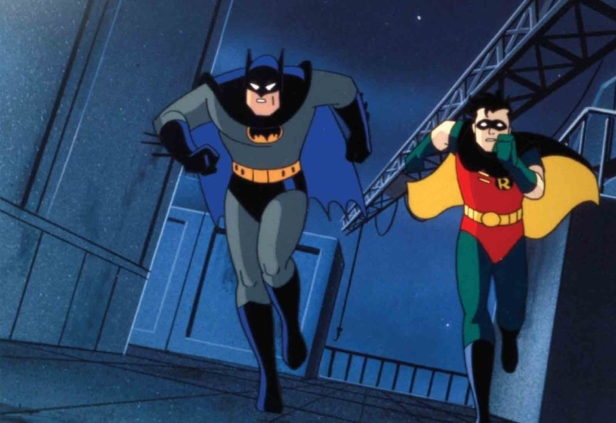
What has it been like interacting with fans of the different incarnations of Batman that you’ve played, from The Animated Series to the Arkham video games?
Well it is interesting, you’ve kind of touched on something. I love to go to the comic cons because when you work in animation and you’re a voice actor, you don’t get that feedback from an audience that you get on stage and that’s really why you become an actor. You want to interact, it’s a live art, it’s a living art, it’s the art of communication. And the communication is with the audience and when you’re working in a sound booth you don’t get that. You get to create the character but you don’t get the feedback! So, when I go to comic cons, that’s when I get to interact with people and it’s a lot of fun.
And you’re right, there is a different crowd now, the gaming crowd tends to be more tech-savvy and more guys in their 20s and 30s who are real tech nerds, whereas the animated show and movies fanbase tends to be more families and kids and older parents who are getting their kids into it. So, it is a different crowd, but it’s such a wide section. The audience is so broad for this character that it’s a unique experience to deal with them all, because you have to be very specific when you deal with each fan.
I think it’s very important to engage them because they all have really important stories to tell about how the character has affected them or what he means to them, and I hear these amazing stories of how a lot of kids who grew up in difficult situations, he was a safe place for them. It’s a real privilege to be a part of the character and to meet the audience.
Batman fans are the most passionate fans of anyone. They’re incredibly loyal and incredibly passionate and I feel a responsibility to them to keep the character fresh, to keep him real, but also when I go to the cons to honour them and to honour their experiences. To make it as good an experience for them as it is for me.
Batman And Harley Quinn is out now on Digital Download, Blu-ray and DVD.
